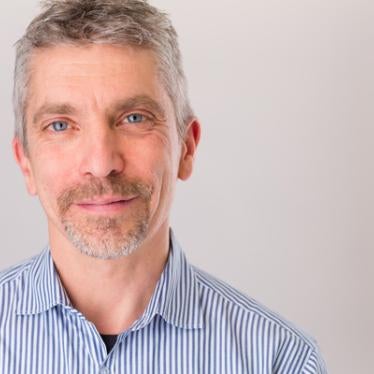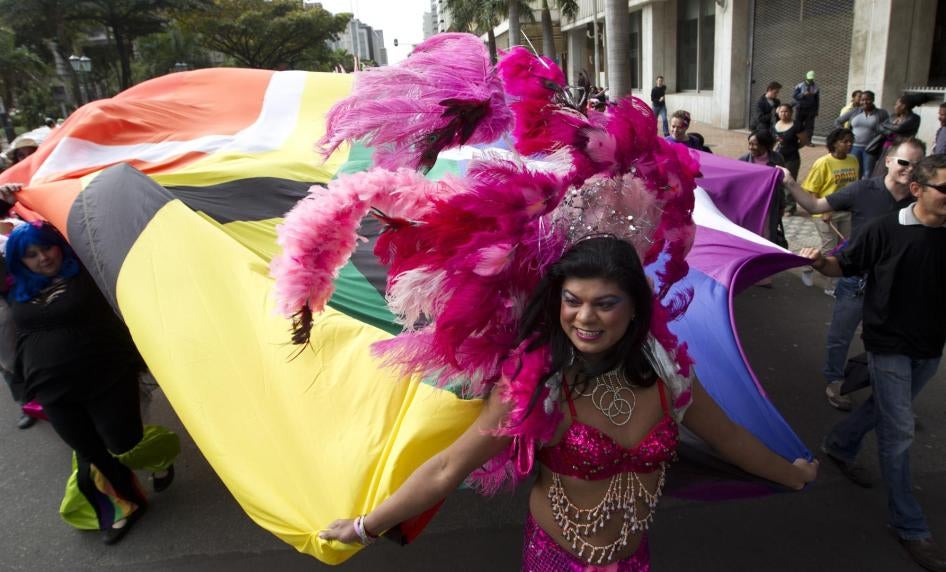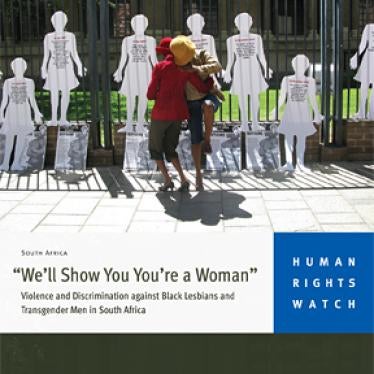In November, SA took two steps on lesbian, gay, bisexual and transgender (LGBT) rights. One is designed to protect LGBT people domestically, the other seeks to undermine their protection internationally. It is a familiar good cop, bad cop scenario, but SA plays both roles.
First the good cop. The Department of Justice and Constitutional Development has released for public comment a draft bill that aims to combat hate crime including that made over sexual orientation, gender identity or intersex status.
It is an important step in the fight against violence. It is the same impetus that led SA to take the lead internationally when it introduced a resolution to the UN Human Rights Council in 2011 calling for an end to violence and discrimination on the basis of sexual orientation and gender identity.
Now the bad cop. In June, SA failed to support a follow-up Human Rights Council resolution calling for the appointment of an independent expert to tackle violence and discrimination based on sexual orientation and gender identity.
Astonishingly, the South African ambassador to the UN even made a speech referring to the anti-apartheid struggle in an attempt to justify SA’s failure to support an international effort to help protect LGBT people from violence and discrimination.
Independent Expert
Nevertheless, even without SA’s support, the resolution was passed. After much consultation, UN expert Vitit Muntarbhorn was appointed as the independent expert and started work this month.
His job is to ensure that existing human rights standards are being effectively used to prevent violence and discrimination on the basis of sexual orientation or gender identity, and to identify its root causes.
Then out of the blue, during the third committee of the UN General Assembly session in New York in November, the Africa group including SA, submitted a draft resolution declining to recognise the independent expert and questioning the "legal basis" of the mandate.
As LGBT people, we know only too well what this language is code for: that LGBT people are not worthy of the same human rights as anyone else.
In its statement, the Africa group makes this explicit.
It calls for the indefinite suspension of the work of the independent expert and refers to the "ominous usage of the two notions: sexual orientation and gender identity", stating that "[t]hose two notions are not and should not be linked to existing international human rights". It flies in the face of the bill of rights in SA’s constitution and the African Commission’s resolution 275 that seeks to protect people from violence on the basis of "sexual orientation or gender identity".
This is not only an affront to our humaneness, but it is also an attack on the universality of human rights.
If the group’s resolution were adopted, it would not only be harmful to LGBT people and to the initiatives that strive to combat violence against them, it would also be destructive to the institutional integrity of the Human Rights Council — the body to which SA recently sought re-election.
Pick and Choose
If the third committee undermines this valid decision by the Human Rights Council, what other decisions might be contested in future?
This is a pick-and-choose approach to human rights, and it can only end badly.
For SA to be associated with this pernicious resolution is a disgrace. Other members of the African group have signalled they will follow SA’s lead.
If our country lines up with states that criminalise — and in some cases set the death penalty for — homosexuality, its position is likely to be instrumental in stripping LGBT people of an international mandate to protect their rights.
But all is not lost. The resolution is expected to come up for a vote as early as Tuesday and SA still has a chance to do the right thing – vote against the resolution and encourage others to do the same.
A government that discourages hate crime at home should not be tacitly condoning it abroad.









